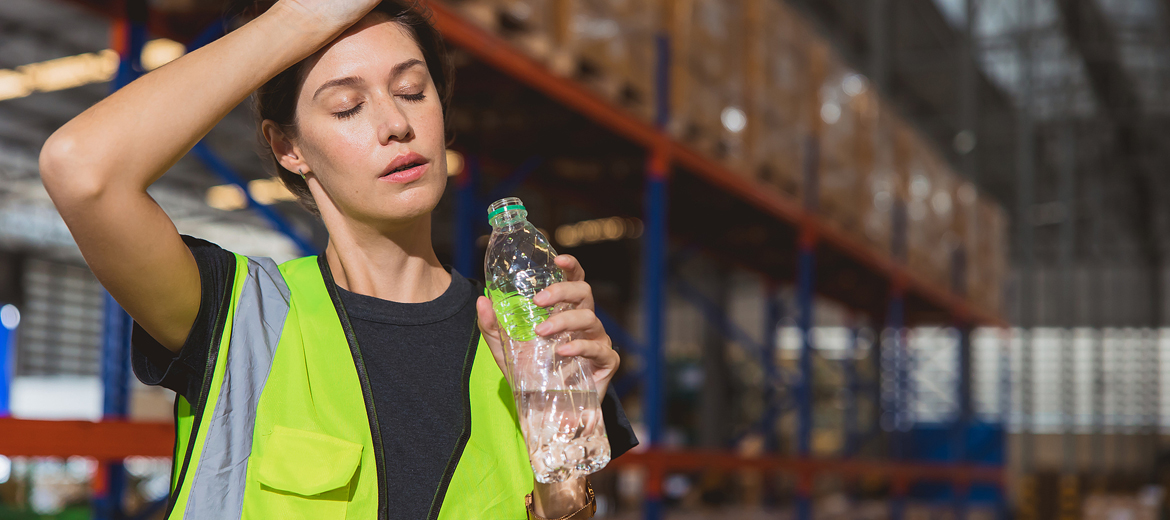Heat exhaustion is a serious concern during hot weather months, this is a medical condition caused by prolonged exposure to high temperatures, excessive physical activity, and inadequate hydration. It occurs when the body is unable to regulate its core temperature effectively, leading to a variety of symptoms.
Symptoms of Heat Exhaustion:
Recognizing the early signs of heat exhaustion is crucial in preventing its progression to more severe heat-related illnesses, such as heatstroke. Common symptoms of heat exhaustion include:
- Excessive Sweating: The body attempts to cool down by sweating profusely.
- Fatigue and Weakness: Feeling drained and tired, often accompanied by weakness.
- Dizziness and Fainting: The drop in blood pressure due to dehydration can cause dizziness or even fainting spells.
- Nausea and Vomiting: Nausea and vomiting may occur as a result of dehydration and electrolyte imbalances.
- Rapid Heartbeat: The heart rate may increase to compensate for the loss of fluids.
- Headache: Persistent headaches can be a symptom of heat exhaustion.
- Pale, Clammy Skin: The skin may become pale and feel cool and clammy to the touch.
- Muscle Cramps: Painful muscle cramps, especially in the legs and abdomen, can arise due to electrolyte imbalances.
Treatment:
Prompt and appropriate treatment is essential to prevent heat exhaustion from progressing to heatstroke, which is a life-threatening condition. Here are the recommended steps for treating heat exhaustion:
- Move to a Cooler Environment: Immediately get the affected person out of the heat and into a shaded or air-conditioned area.
- Hydration: Encourage the individual to drink plenty of fluids, preferably water or oral rehydration solutions, to replenish lost fluids and electrolytes.
- Rest: Have the person lie down and elevate their legs to improve blood flow to the brain and reduce strain on the cardiovascular system.
- Cooling Measures: Apply cool, wet cloths or towels to the person’s skin or have them take a cool shower to help lower body temperature.
- Loosen Clothing: Remove or loosen tight or unnecessary clothing to improve heat dissipation.
- Medical Attention: If the symptoms persist or worsen, seek immediate medical attention. Remember, myDoc Urgent Care is right here for you if you need help.
Heat exhaustion is a serious condition that can affect individuals of all ages, especially during periods of extreme heat and physical exertion. Understanding its causes, recognizing its symptoms, and taking appropriate preventive measures are vital in minimizing the risk of heat-related illnesses. By staying hydrated, avoiding prolonged exposure to high temperatures, and seeking medical attention if symptoms arise, we can ensure our safety and well-being during hot weather conditions.
As always, myDoc Urgent Care is located in the City of Philadelphia, we’ll be happy to answer your questions. Give us a call at 215-800-1909.
Center City
1420 Locust St Philadelphia, PA 19102
Phone: 215.800.1909
University City
3717 Chestnut St. Philadelphi, PA 19104
Phone: 215.921.8294
Temple University Main Campus
1501 N. Broad Street, Phila, PA 19122
Phone: 267.457.5553
Chinatown
1008 Arch St. Philadelphia, PA 19107
Phone: 267.881.9111





